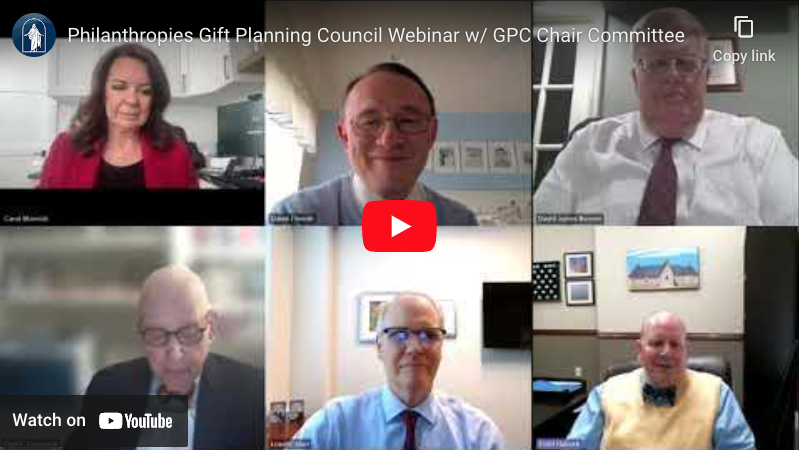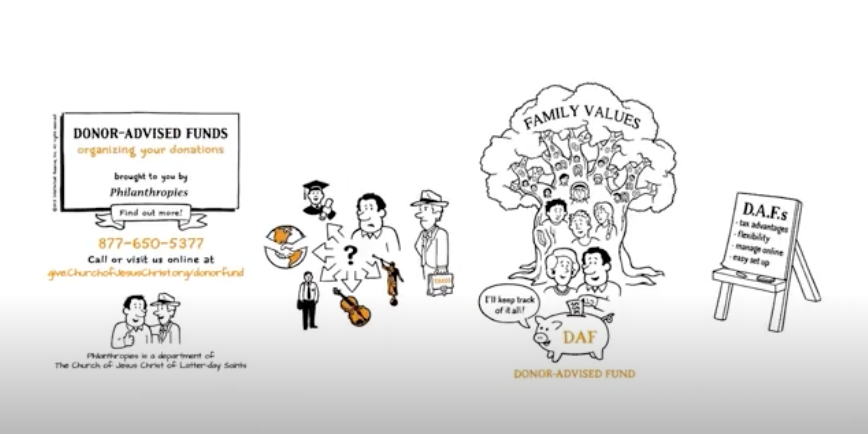
Winter 2024 GPC Newsletter

Shepherds and Wise Men and Planned Gifts
David Bonner, Sr. Mgr, Gift Planning Services
As I prepare this message in late November, holiday decorations are up and Christmas music fills the air! I have already heard Little Drummer Boy, a personal favorite, at least a dozen times. I am particularly fond of the lyrics “I played my best for him.” Like the little drummer boy, I would like to give my best to our Savior, too.
I love the Christmas story of the Shepherds and the Three Wise Men. They represent the wide spectrum of society from the poorest to the wealthiest. They also seem to represent each one of us in our own personal journey to come to know the Lord.
The Shepherds, following the angelic proclamation of Christ’s birth, immediately went to him. Perhaps humble circumstances prepared them for an immediate audience with baby Jesus. They must have been tending their flocks near Bethlehem.
The Wise Men had to travel further and did not arrive until much later. That is why the Wise Men, and their camel train, are traditionally placed some distance from the other figures in our nativity sets. They patiently followed the guiding star which sustained their lengthy journey to find and see the Savior. It is likely that the wise men arrived in Bethlehem two years after Jesus was born.
We are also on a journey to come to the Lord. For many of us, seeking the Savior is a life-long journey. We too will encounter challenges and difficulties. But as we endure to the end, we can come to know Him.
Here is a link to a favorite Church video which beautifully portrays this story.
The Christ Child: A Nativity Story
The perseverance of the Wise Men provided them with the great blessing of being in the presence of the Christ child. And the magnificent gifts they left for Jesus (I would like to think of their largesse as “planned gifts,”) allowed impoverished Joseph and Mary the financial means to flee to Egypt with Jesus to escape Herod’s slaughter of all boys two years and younger in Bethlehem. The gifts of the Wise Men then allowed Jesus and his family to return to Nazareth following the death of Herod. This is a premier example of an impact gift to bless all humanity.
During this Christmas season, as we celebrate the birth of our Savior, the team at Gift Planning Services expresses our appreciation for the service you render your clients and for all you do to help promote charitable giving to the many worthy causes which surround us. Like the Wise Men, your clients make impact gifts which bless all humanity. Thank you for your untiring effort to help others.
Merry Christmas and best wishes as you prepare for the new year!
Shirtsleeves to Shirtsleeves In Three Generations
Mikal B. Aune, MBA, CFP®, VP of Wealth Management, Smedley Financial
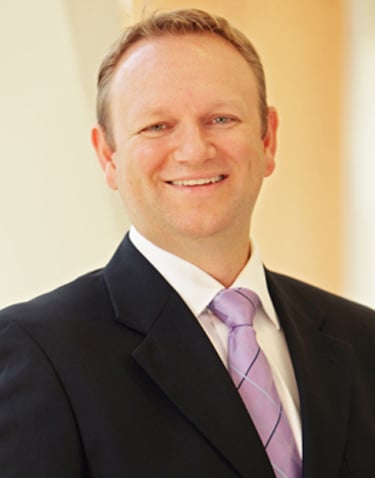
There is an unfortunate pattern in families where the first generation works hard to build wealth, the second generation maintains it, and the third generation squanders it. This cycle of wealth creation and destruction in the U.S. is called “shirtsleeves to shirtsleeves in three generations.”[i] It applies to families with $10,000 to $100,000,000. This phenomenon is so universal that it happens throughout the entire world. In Ireland, it is called “clogs to clogs in three generations.” China’s version is “rice paddy to rice paddy in three generations.” Ninety percent of families that gain wealth succumb to this parable.[ii] So, what do the ten percent of families do right to preserve their wealth?
(1) Families change how they define wealth. Wealth is much more than money. It is human, intellectual, AND financial capital. Human capital is physical, emotional, and social well-being. Intellectual capital is knowledge and experience. Financial capital is money and assets.
The goal is to improve the human, intellectual, and financial capital for each successive generation. These principles apply to all families regardless of the size of their financial capital. Financial capital is only one mechanism to help improve the human and intellectual capital of each of the family members. There are many ways to improve a person’s wealth without spending money and many ways to destroy someone’s wealth by giving them money.
(2) Families think of their family as a business. The purpose of the business is to provide a long-term succession plan that will tutor each new member and prepare them to lead the family in the future. With that comes an understanding that each generation needs to work to build wealth like the first generation.
(3) Families implement a 7th generation mentality. Inheritors typically have a “rush” of adrenaline and are prone to make poor choices, like buying a new car. On average, a new car is purchased within 72 HOURS of receiving an inheritance. Instead, family members must be stewards of assets--not just inheritors. As stewards, the financial capital is intended to improve their lives AND the lives of each successive generation, to the 7th generation.
(4) Families define their values and use stories to pass them on to the next generation. Without a helm, a ship will sail off course. If families aren’t governed by values, they will also veer off course. The most effective way to pass on values is through stories. These stories should be documented and shared at family gatherings or in a family newsletter.
(5) Families understand and manage the risks that are being taken with their financial capital. The third generation tends to either be too aggressive or too lax with financial capital. Each successive generation should be tutored in investing so they can have a better understanding of potential risks and rewards.
(6) Families teach their posterity how to give. A person’s perception of wealth is changed when they see others who have difficult life circumstances. Families can create purpose, unity, and a changed perception of money by working together to come up with donations for a charity and then going together to do service for that charity.
(7) Families understand that most issues with wealth preservation are qualitative and not quantitative. For example, a family’s financial balance sheet needs to be reviewed to determine growth from one year to the next, and a family needs to hold an annual council meeting to review the progress each family member is making.
Some questions to determine this are: Is each member thriving? Is their human, intellectual, and financial capital improving/deteriorating? Is there any assistance that the family can provide without controlling or enabling?
No family is perfect, and all families will have issues due to death, divorce, substance abuse, mental illness, etc. However, these issues can be overcome if the family members find common values and strive to show mutual respect, love, forgiveness, and compassion.
Families that have worked hard to build wealth, be it tangible or intangible, don’t want to see that wealth squandered. A family can pass on wealth if family members work together to improve their human, intellectual, and financial capital. This requires planning and work. However, the rewards of seeing a family’s wealth grow are immeasurable.
[i] James E. Hughes, Jr. (2004) Family Wealth: Keeping It in the Family
[ii] James E. Hughes, Jr. (2004) Family Wealth: Keeping It in the Family
Rudy A. Carlos Spotlight
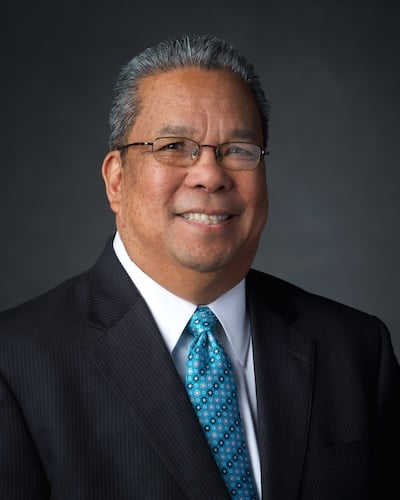
Rudy A. Carlos, Donor Liaison for Gift Planning, graduated from Brigham Young University majoring in Business Management. He spent a lot of years working in the Pharmaceutical/Medical Industries, starting as a sales representative and progressing to various roles including district and national sales manager. Following his service as mission president and later as president of the Philippines Missionary Training Center, he began working in Philanthropies as Donor Liaison for Major Gifts. This was interrupted when he was called to serve as President of the Payson Utah Temple. Following his release as temple president, he returned to full-time work with Philanthropies, this time with the Gift Planning Services Team. Rudy is a product of Philanthropies. After his conversion, he obtained loans and scholarships that allowed him to attend BYU Hawaii (then Church College of Hawaii). He served a full-time mission in the Hawaii Honolulu Mission. Rudy and his wife Brenda are parents to two sons, and five grandchildren.
Rudy loves BYU Sports, Traveling, and Cooking. He and his wife Brenda recently completed a Mediterranean Cruise, the highlight of which is attending the Rome Temple. They have done numerous other cruises including the Caribbean, Alaska, and the Rhine River. A self-described foodie, Rudy loves discovering unique and delightful food destinations and restaurants. He is most happy in the kitchen cooking delicious meals for friends and family. While serving as the MTC President in the Philippines, 7 of the 12 Apostles, numerous other General Authorities and Auxiliary Leaders visited the Philippines. Many of them enjoyed a meal prepared by Rudy.
On-Demand Webinars/Past Events
As a service to our Gift Planning Council friends, we have made video presentations on timely topics available on our website. These were given by our talented colleagues. This also includes presentations given during past GPS events. We hope they add value to you and your clients.
A list of available videos is on this page.
Ensign College
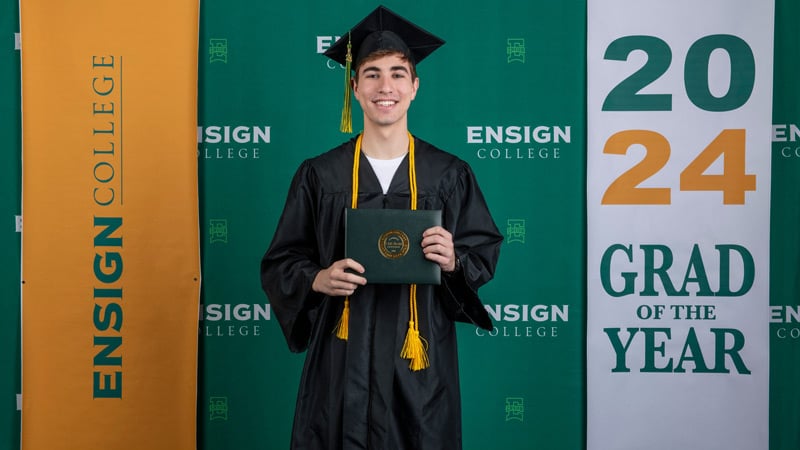
Ensign College provides a market-driven, skills-based education, offering certificates, associate and bachelor’s degrees offered in fields where employment demand is high and entry-level earning potential is excellent.
Giving Opportunities
Current fundraising priorities at Ensign College include scholarships focused on needs-based student aid as well as scholarships for students who demonstrate leadership and service. Student aid scholarships support internships, leadership, missionary service, international students, and PathwayConnect graduates.
Learn more about Ensign College and how donors can further this great work.
Informational Videos
We have created numerous informational videos that can be used easily to introduce and even educate individuals about segments of gift planning. They are easily available in the Gift Planning section of the Philanthropies website. One example is the following:
Donor Advised Funds
This video gives you a one-minute guide to how Donor Advised Funds work.
PS: Don’t forget to add giftplanning@ChurchofJesusChrist.org to your safe-senders list.
PPS: If you have friends or colleagues who you think would benefit from receiving this newsletter or other Gift Planning Council correspondence, please contact David Bonner at david.bonner@ChurchofJesusChrist.org or at 801-356-5247.
Contact Us
For a detailed discussion of the services we provide you and your advisors, please contact us at 1-877-650-5377 or by email.
